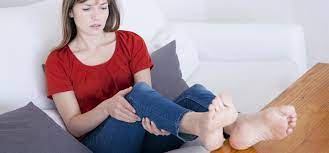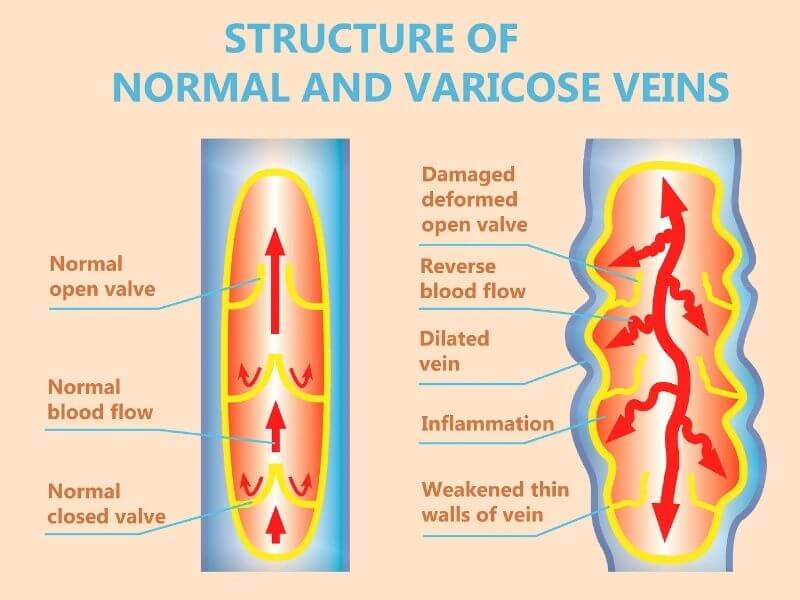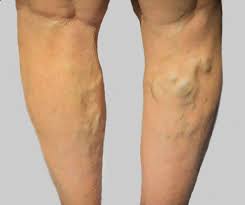Fatigue and Heaviness: Key Symptoms of Varicose Veins
Varicose veins are a widespread vascular condition that affects millions of people globally, often leading to discomfort, pain, and various complications. While most people recognize varicose veins by their visible appearance—twisted, swollen, and enlarged veins—there are less visible but equally important symptoms that can significantly affect daily life. Among the most common of these are fatigue and a sensation of heaviness in the legs. Fatigue and Heaviness Key Symptoms of Varicose Veins
These symptoms often go hand-in-hand with varicose veins and can worsen over time if the condition is left untreated. In this article, we will explore why fatigue and heaviness occur in varicose veins, how they affect the body, and the treatment options available to alleviate these symptoms.

Understanding Varicose Veins and Why They Cause Fatigue and Heaviness
Varicose veins develop when the valves inside the veins—typically in the legs—fail to work correctly. These one-way valves usually prevent blood from flowing backward as it returns to the heart. When these valves weaken or become damaged, blood can pool in the veins, increasing pressure and causing the veins to swell and twist.
The heaviness and fatigue that people experience with varicose veins are a result of this poor blood flow. When blood is not properly circulated back to the heart, it accumulates in the legs, leading to increased pressure in the veins. This pressure makes the legs feel tired, heavy, or achy, especially after long periods of standing or sitting.
Why Do Fatigue and Heaviness Occur in Varicose Veins?
Fatigue and heaviness occur because the affected veins struggle to return blood to the heart efficiently. This causes an abnormal pooling of blood, leading to increased pressure within the veins. This ongoing strain on the circulatory system forces the muscles and tissues in the legs to work harder to maintain normal blood flow, leading to a feeling of fatigue.
- Muscle fatigue: Since the muscles in the legs are working harder to pump blood upward, they can become fatigued more easily, especially after standing or walking for extended periods.
- Blood pooling: The pooling of blood in the lower extremities increases the weight and pressure in the veins, creating a sensation of heaviness or dragging in the legs.
1. Feeling of Heaviness in the Legs
One of the most commonly reported symptoms of varicose veins is a sensation of heaviness in the legs. This heaviness is often described as a dragging or pulling sensation, particularly at the end of the day or after prolonged periods of standing or walking. This sensation can be distressing and make it difficult to engage in everyday activities.
- Worsening at the end of the day: The feeling of heaviness typically worsens in the evening, after a day of being on your feet. The gravitational force makes it harder for blood to return to the heart, exacerbating the pooling in the veins.
- Alleviated by rest: This symptom often improves with rest or when the legs are elevated, as these positions allow for better blood flow back toward the heart.
2. Leg Fatigue
Along with the sensation of heaviness, people with varicose veins often experience fatigue in the legs. This tiredness can make it challenging to stay active and can impact mobility. Leg fatigue occurs because the muscles in the legs must work harder to push blood upward against gravity, leading to muscle exhaustion more quickly than usual.
- Muscle soreness: The fatigue is often accompanied by mild to moderate muscle soreness, particularly after walking or standing for long periods.
- Cramping: Some people may also experience leg cramps, particularly at night, due to the increased strain on the muscles and the poor circulation caused by varicose veins.
Factors That Contribute to Fatigue and Heaviness in Varicose Veins
Several factors can worsen the symptoms of fatigue and heaviness in people with varicose veins:
1. Prolonged Standing or Sitting
Standing or sitting for long periods can make the symptoms of fatigue and heaviness worse. Gravity pulls blood down into the legs, which increases the pressure in the veins and worsens the pooling of blood. People who work in jobs that require long hours of standing or sitting, such as retail workers, teachers, or office workers, are particularly susceptible to these symptoms.
2. Pregnancy
Pregnancy is a major contributing factor to the development and worsening of varicose veins. The increased blood volume during pregnancy, along with hormonal changes that relax the blood vessels, can lead to more pronounced fatigue and heaviness in the legs. Additionally, the growing uterus puts pressure on the veins in the pelvis, making it harder for blood to return to the heart, thus exacerbating leg fatigue.
3. Obesity
Carrying excess weight puts additional strain on the veins, making it harder for blood to circulate effectively. This increased pressure leads to more significant symptoms of fatigue and heaviness in the legs, as the body must work harder to pump blood through the veins.
4. Age
As people age, the risk of developing varicose veins increases. The veins and valves in the legs become weaker over time, making it more difficult for blood to flow properly. With age, the likelihood of experiencing leg fatigue and heaviness as a result of varicose veins also rises.

Treatment Options for Fatigue and Heaviness Caused by Varicose Veins
While varicose veins cannot be completely reversed without medical treatment, there are several effective ways to manage the symptoms of fatigue and heaviness. Treatment options range from lifestyle changes and compression therapy to medical procedures that improve circulation and relieve discomfort.
1. Compression Therapy
Compression stockings are one of the most commonly recommended treatments for managing the symptoms of varicose veins. These specially designed stockings apply gentle pressure to the legs, helping improve blood flow and reduce the pooling of blood in the veins.
- Prevention of blood pooling: Compression stockings work by encouraging better circulation and reducing swelling in the legs, which can alleviate the feeling of heaviness and fatigue.
- Daily use: Wearing compression stockings throughout the day, especially during periods of prolonged standing or sitting, can prevent symptoms from worsening.
2. Elevating the Legs
Elevating the legs above the level of the heart can help reduce the sensation of heaviness and relieve fatigue by promoting better blood flow back to the heart.
- How to elevate: Lying down with your legs elevated on a pillow for 15–30 minutes several times a day can help reduce symptoms.
- Immediate relief: Elevating the legs is particularly useful after long periods of standing or sitting to relieve discomfort quickly.
3. Regular Physical Activity
Regular exercise, such as walking, swimming, or cycling, is crucial for improving circulation and preventing varicose vein symptoms from worsening. Exercise helps strengthen the calf muscles, which play a key role in pumping blood back to the heart.
- Low-impact activities: Engaging in low-impact activities like walking or swimming can improve blood flow without putting too much strain on the legs.
- Consistency is key: Regular exercise helps maintain proper blood flow and prevents the worsening of symptoms like fatigue and heaviness.
4. Weight Management
Maintaining a healthy weight can help alleviate the pressure on the veins and reduce symptoms of fatigue and heaviness. Losing excess weight reduces the strain on the circulatory system, making it easier for blood to flow back to the heart.
5. Medical Procedures
If lifestyle changes and conservative treatments are not effective, several minimally invasive procedures can treat varicose veins by improving circulation and relieving symptoms. These include:
- Sclerotherapy: A procedure in which a solution is injected into the varicose veins, causing them to close and eventually fade.
- Endovenous laser therapy (EVLT): A laser is used to close off the affected veins, improving blood flow and reducing symptoms.
- Vein stripping: In more severe cases, surgery may be necessary to remove or tie off damaged veins.

Frequently Asked Questions (FAQs)
1. Why do varicose veins make my legs feel heavy?
The feeling of heaviness occurs because the blood is not circulating properly and is pooling in the veins, increasing pressure. This makes the legs feel tired and heavy, especially after standing or walking.
2. Can fatigue from varicose veins be prevented?
While varicose veins themselves may not be entirely preventable, symptoms like fatigue can be managed through lifestyle changes, regular exercise, wearing compression stockings, and elevating the legs.
3. Is the heaviness caused by varicose veins dangerous?
While the heaviness itself is not dangerous, it can be a sign of worsening varicose veins. If left untreated, varicose veins can lead to complications like skin ulcers, blood clots, or chronic venous insufficiency.
4. How can I get rid of the fatigue caused by varicose veins?
Fatigue can be alleviated by improving circulation through exercise, compression therapy, elevating the legs, and seeking medical treatment if necessary.
5. Can varicose veins cause leg cramps?
Yes, varicose veins can cause leg cramps, particularly at night. These cramps occur due to poor circulation and increased pressure in the veins.
6. When should I see a doctor for fatigue and heaviness in my legs?
If the fatigue and heaviness in your legs persist despite home treatments or are accompanied by severe pain, swelling, or skin changes, it is important to see a doctor for further evaluation.
A perfect Solution Of Varicose Veins Click Here



